Palestinian who filmed Israeli soldier shooting disarmed man dead in Hebron receives death threats
'It is a surprise to us that people care now,' Imad Abushamsiya tells The Independent
Your support helps us to tell the story
From reproductive rights to climate change to Big Tech, The Independent is on the ground when the story is developing. Whether it's investigating the financials of Elon Musk's pro-Trump PAC or producing our latest documentary, 'The A Word', which shines a light on the American women fighting for reproductive rights, we know how important it is to parse out the facts from the messaging.
At such a critical moment in US history, we need reporters on the ground. Your donation allows us to keep sending journalists to speak to both sides of the story.
The Independent is trusted by Americans across the entire political spectrum. And unlike many other quality news outlets, we choose not to lock Americans out of our reporting and analysis with paywalls. We believe quality journalism should be available to everyone, paid for by those who can afford it.
Your support makes all the difference.The man who recorded the moment an Israeli soldier shot a disarmed Palestinian man in the head says he has received death threats and abuse for exposing the killing.
Imad Abushamsiya was having coffee with his wife at their home in Hebron on the morning of 24 March when he heard gunshots outside.
“I took my camera and the first thing I saw was a young man on the ground, wearing a black T-shirt and black trousers,” he told The Independent.
“I heard voices and a second young man further up the hill, bleeding and surrounded by soldiers and settlers.”
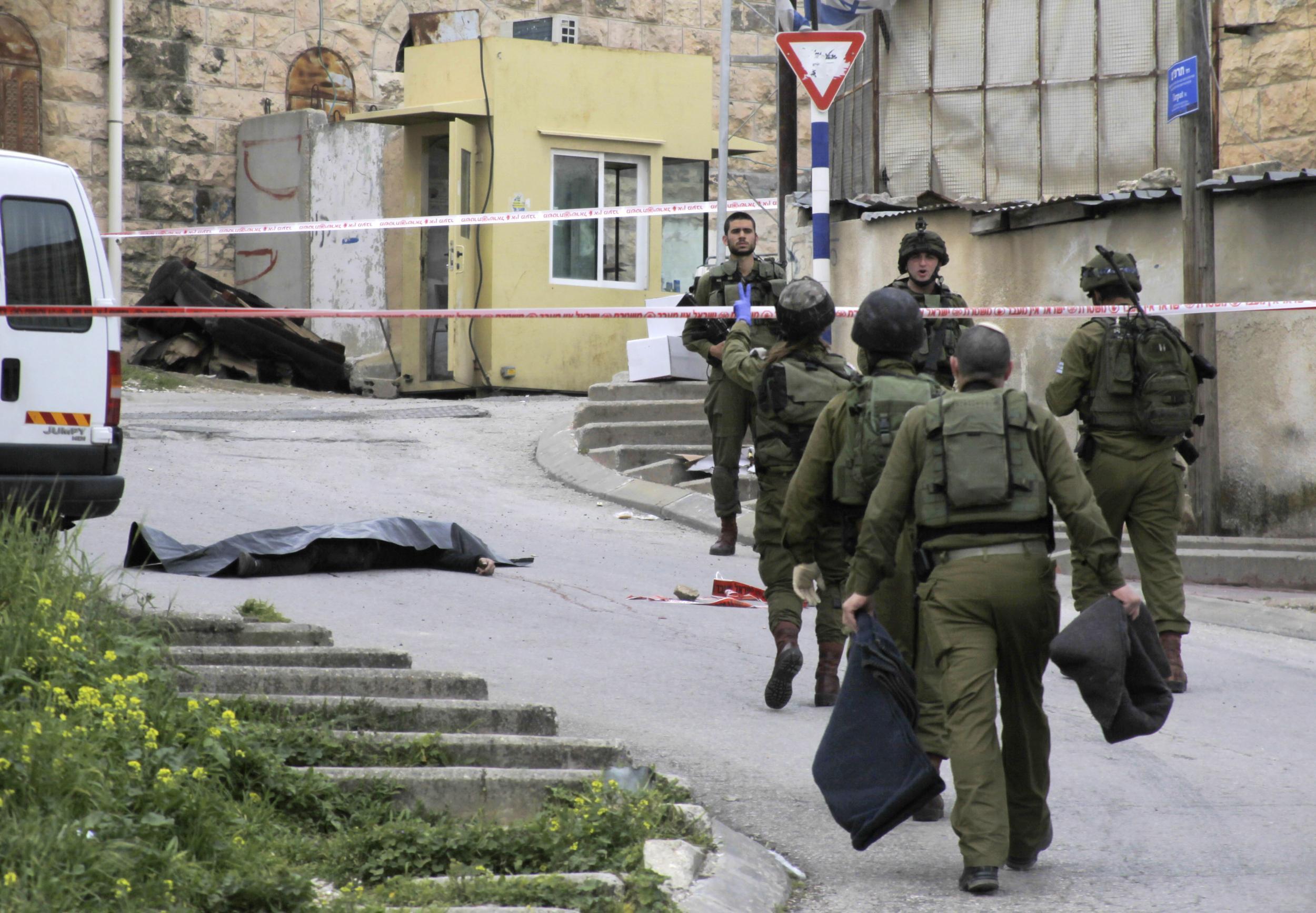
Both young Palestinians had been shot after stabbing an Israeli Defence Forces (IDF) soldier in one of many similar attacks in the city.
Ramzi al-Kasrawi, further up the hill, was already dead but 21-year-old Abdel Fattah al-Sharif initially survived his gunshot wounds.
The footage shows him lying incapacitated in the middle of the road, moving his head listlessly from side to side as a crowd of soldiers, paramedics and armed settlers move around him, appearing to make no attempts to check his condition.
Behind him, the injured soldier sits up on a stretcher as he is helped into an ambulance for treatment.
The situation appears calm until another soldier shouts “stand back!” and shoots Mr al-Sharif in the head at close range.
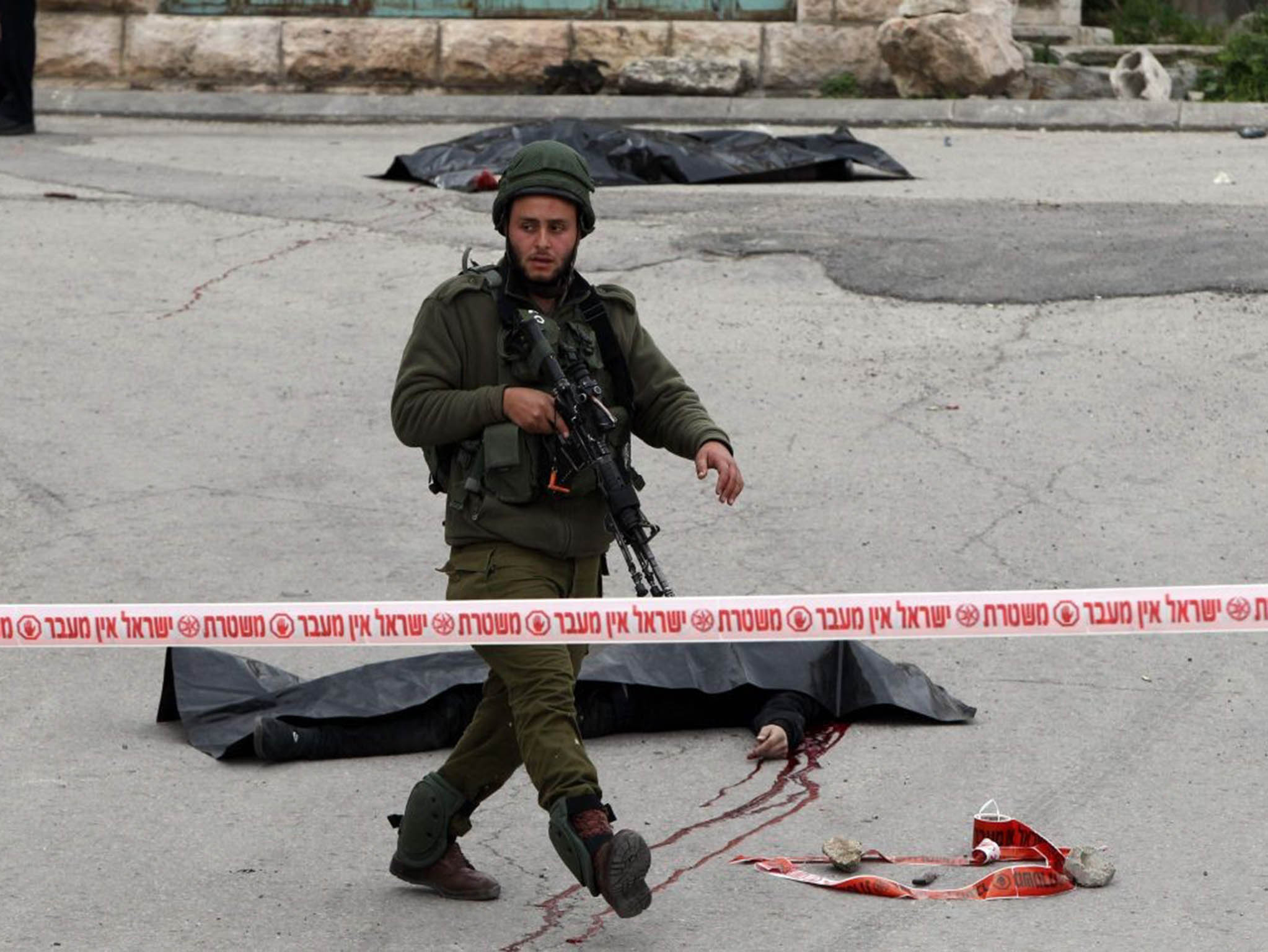
“When I saw the soldier shoot (him) and I saw part of his head destroyed by the bullet, his brains on the floor, I felt terrified,” Mr Abushamsiya said.
“I was completely and utterly shocked.”
The camera shook in the following seconds but he managed to keep recording as Mr al-Sharif’s blood started running down the road, with the surrounding soldiers and settlers appearing to pay the killing little notice.
Mr Abushamsiya's footage was published by the Palestinian Human Rights Defenders group and shared by Israeli human rights group B’Tselem, which condemned it as an “extrajudicial street killing”.
Within hours it had been picked up by news outlets around the world, sparking international condemnation and a rare statement from the Israeli authorities criticising a “grave breach of IDF values, conduct and standards of military operations”.
Mr al-Sharif is just one of almost 200 Palestinians killed since an intensified wave of violence started in October. During the same period, 28 Israelis and two Americans have been killed.
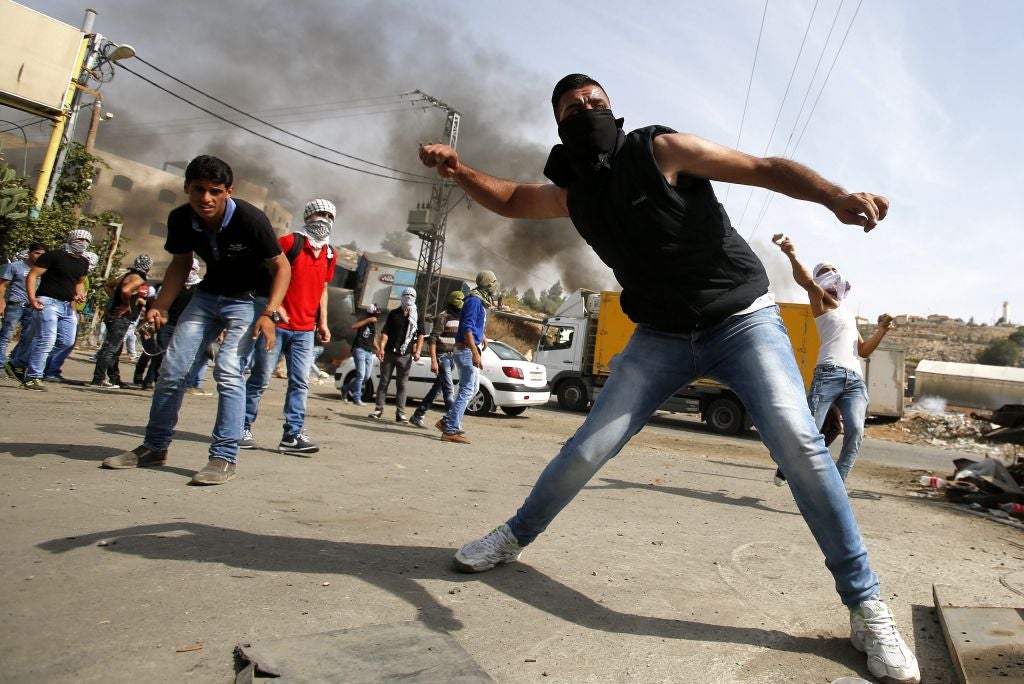
The IDF has said the majority of those shot dead were carrying out or attempting stabbings but opponents have called the killings, including those of children and teenagers, disproportionate and the circumstances are often contested.
The 19-year-old soldier who shot Mr al-Sharif dead is to be charged with manslaughter but has reportedly told military police he did nothing wrong.
According to a transcript obtained by Israel’s Channel 2, the unnamed man told investigators he believed the Palestinian was wearing an explosive vest and was still a threat.
“It’s logical that a terrorist who comes to murder must die,” he added.
Mr Abushamsiya said that if a suicide vest was considered a possibility the area should have been evacuated, rather than risking the lives of soldiers and civilians standing metres away with a gunshot.
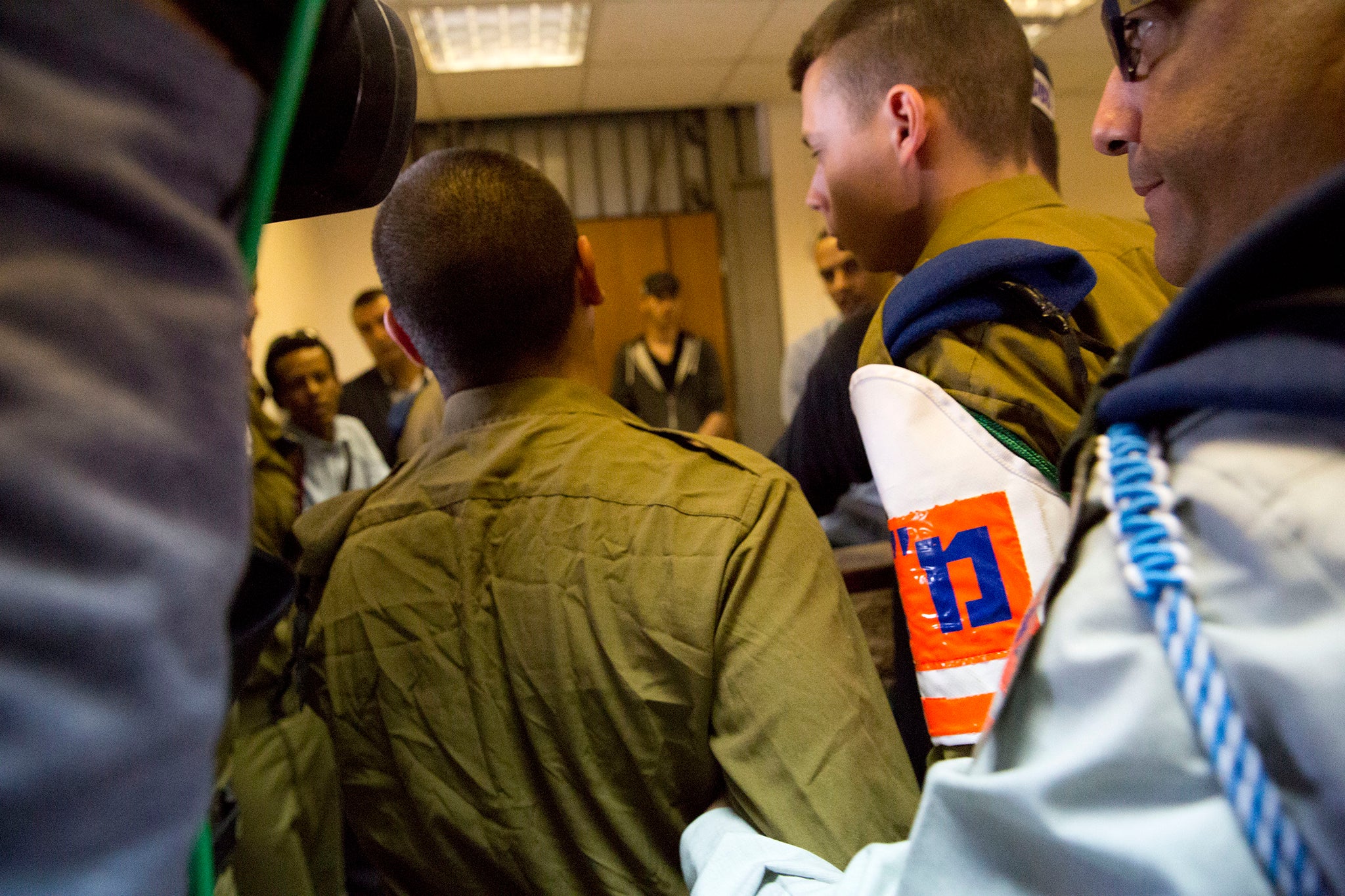
“Nobody was at risk,” he added. “There was no danger and Abdel was on the ground…nobody reacted. Nobody did anything because they were Palestinians.”
The shooting has generated fierce debate in Israel, with protesters rallying to support the soldier and human rights groups protesting about the deaths of Palestinian.
Benjamin Netanyahu, the Israeli Prime Minister, urged soldiers to “behave with composure”, while his defence minister Moshe Ya’alon said a “loss of control” must not be allowed.
But there is discord even in the highest levels of government, with education minister Naftali Bennett writing on Facebook: “The soldier is not a murderer. Have we lost our minds? We are at war, a war against brutal terrorism."
On the other side of the debate, Dr Jawad al-Awad, the Palestinian minister of health, called the shooting a ”war crime“ and Arab List politician Dov Khenin condemned the “terrible reality” of killings by the armed forces.
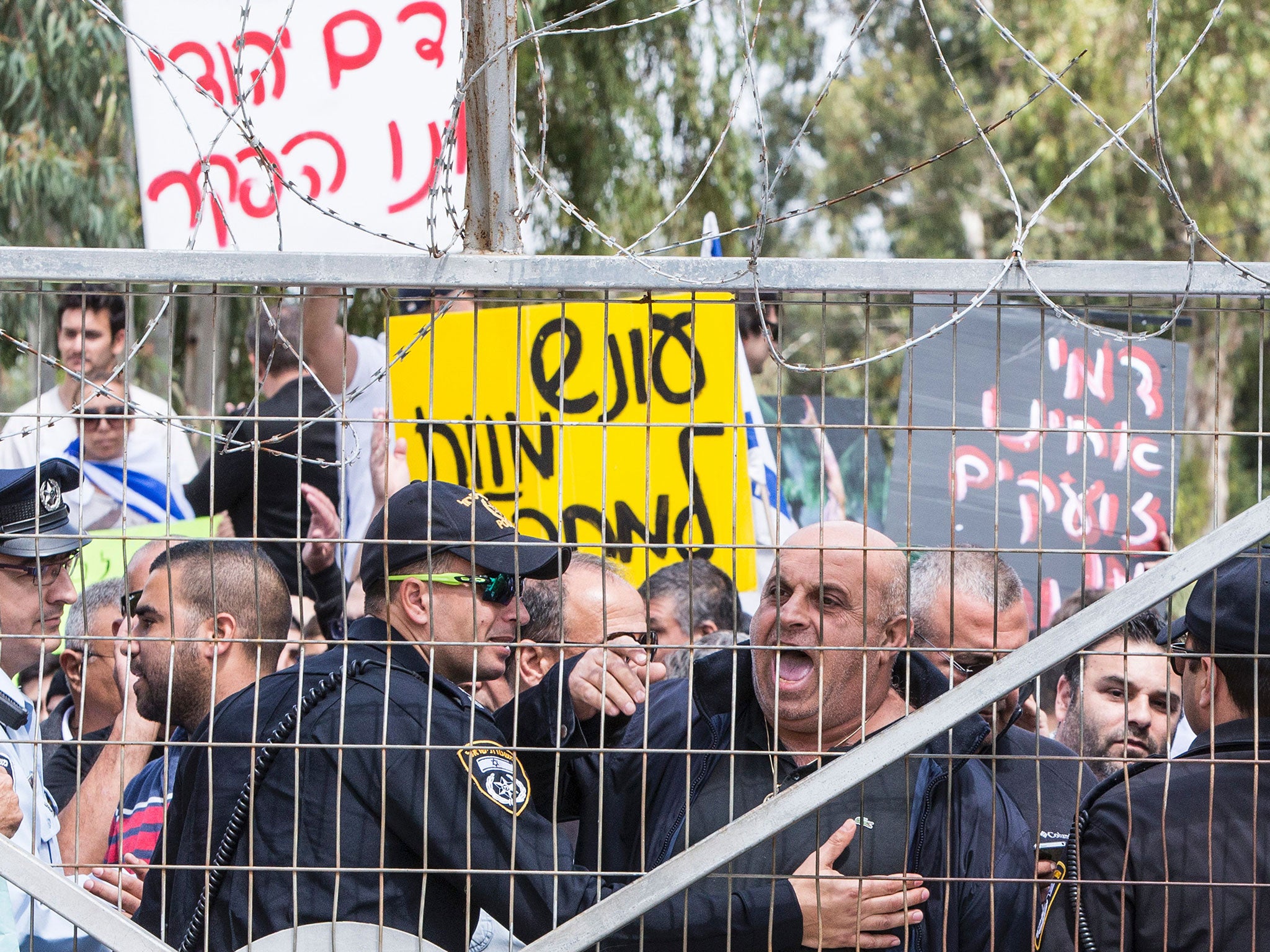
Amnesty International was one of numerous human rights organisations to demand action, calling any shooting of an incapacitated person a “potential war crime”, regardless of their previous actions.
Mr Abushamsiya said he was shocked at the level of reaction to his video, claiming that similar incidents happen on a “daily basis” in Hebron.
“It is a surprise to us that people care now,” he added. “What would have happened if I was not there to film?”
He lives with his wife and children in Hebron, which sees frequent clashes between Palestinians, settlers and security forces. Housing sensitive religious sites including the Cave of the Patriarchs/Ibrahimi Mosque, it is divided between Israeli and Palestinian Authority control, with numerous military checkpoints around Jewish settlements in the Old City.
Mr Abushamsiya, who is part of Hebron’s Human Rights Defenders group, said he has trained his whole family to use cameras so they can document any outbreaks of violence.
He records clashes regularly but said the 24 March shooting was “undoubtedly the most important incident” he has ever filmed.
The accused soldier blamed the media reaction to the footage for the decision to charge him, reportedly telling investigators that prosecutors were “scared of what the newspapers and of what the world will say”.
Palestinians have flooded Mr Abushamsiya with messages of support, but Israeli settlers have also allegedly distributed his photo on posters calling for his death.
“I live only 100 metres from the settlers and I am scared for my and my family's safety,” he said, adding that his activism has previously seen him beaten and have his equipment destroyed.
He is not optimistic about any lasting changes in IDF policy, which has recently prompted concern by the UN High Commissioner for Human Rights over “excessive use of force”.
Cecile Pouilly, a spokesperson for the UN body, called for all cases of death or injury by police and the military to be subject to be subjected to “prompt, independent and impartial investigations”.
Mr Abushamsiya said he believes the killing has changed some perspectives internationally but added that widespread Israeli support for the soldier showed there was little possibility of change.
“It has made clear to us – and we hope to the wider world – just how much Israel has devalued Palestinian lives,” he added.
“The video has demonstrated to the world what we in Palestine have long known about Israel's human rights values.”
A spokesperson for the Israeli Embassy in London denied his allegations.
“The military investigation and subsequent decision to prosecute, reflects the gravity with which the incident was viewed,” he said.
“The claim that similar incidents happen regularly is baseless, as is the assertion that the video instigated the investigation.
“In fact, the IDF began to investigate based on reports by commanders at the scene, prior to the surfacing of the video, as has been reported widely.”
Subscribe to Independent Premium to bookmark this article
Want to bookmark your favourite articles and stories to read or reference later? Start your Independent Premium subscription today.

Join our commenting forum
Join thought-provoking conversations, follow other Independent readers and see their replies
Comments